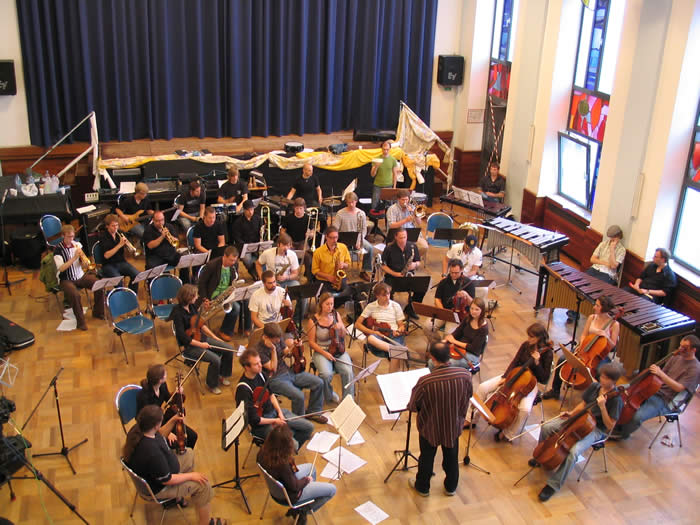The lively versatility is extraordinary and enchanting. The prelude is "Rabi Hashem." The longer motif has Jewish flair, is inspired by big band jazz, and virtuosically demonstrates its friendly, restrained mood. The large wind ensemble is kept very dynamic. The "quirky" harmonies have wit and melancholy; it seems as if the note could immediately burst into either gloom or exuberance, but without giving in to this sensual thrill. Very successful opener. The adorably comic "Naw Ruz" is a Jewish jazz note from the Balkans, uncommonly fresh, like a mix of jazz and brass music, lively yet also with a serious, thoughtful note. Some of it, like the tender jazz ballad "Enpanadas," has deep lyrical intimacy, but it can also be picked up in improvisational lively playing and varied with an almost joyful note. "White Flowers" is an avant-garde touch. The classically orchestrated theme finds its way to a dark motif and changes character again and again. It "flips," becomes folk, and "flips back" into the classical waters of strings. The flute alone is always present. "Dancing To Sophia" is included in two exquisite versions, a stormy classical one that can't be fast enough, and the more casual, powerful jazz counterpart. Both have that special Jewish art of playing melancholy and joyfulness in one note, in one expression.
It is Vahid Matejko's concern to bring cultures, people and countries closer, to emphasize not the contrasts but the commonalities. This has been achieved in his music in an all-round excellent way. My recommendation!



